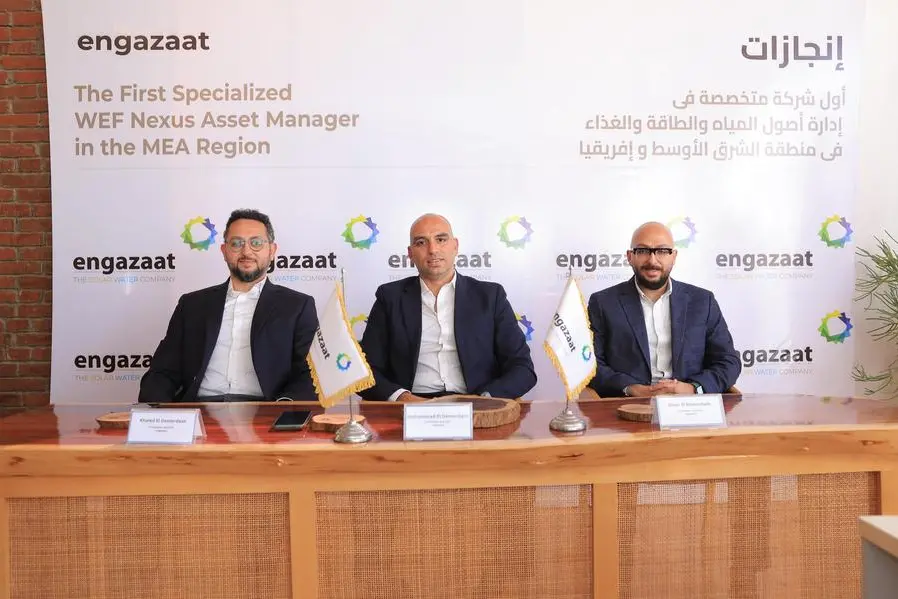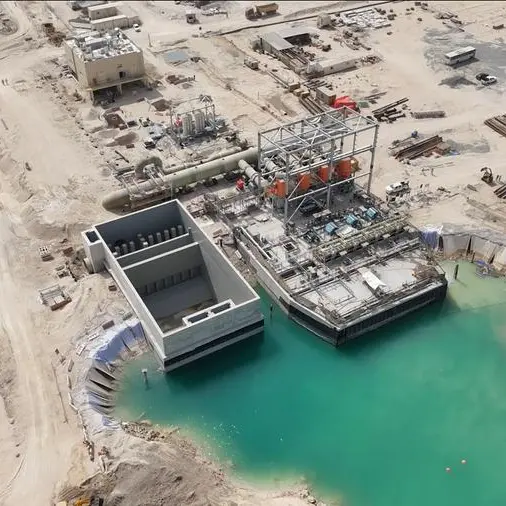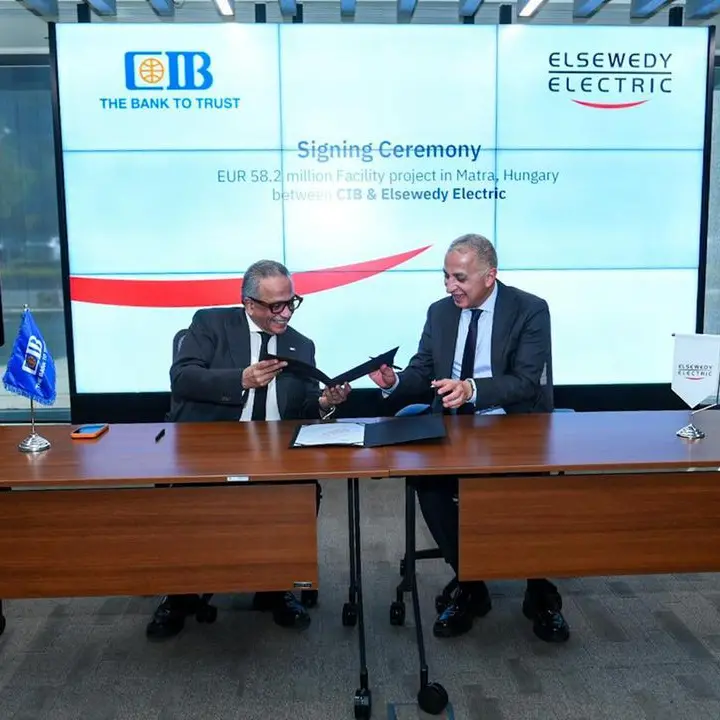PHOTO
Engazaat, the Middle East and Africa’s first specialised asset manager dedicated to water, energy and food (WEF) nexus, plans to invest more than $100 million in regional expansion as part of a wider $250 million project portfolio, its top executive said.
The Egypt-headquartered company's founding partner and CEO Muhammad El Demerdash told Zawya Projects that Engazaat works across three connected systems - water, renewable energy, and food production - investing in and operating sustainable infrastructure projects that serve farms, businesses, and communities.
He said the company is expanding its operations in Egypt, Lebanon and UAE through long-term service and utility offtake agreements with commercial, agricultural and industrial clients under a Build–Own–Operate (BOO) model.
“We approach water, energy, and food infrastructure as one connected investment case,” El Demerdash said. “When these systems are designed and financed together, they perform better and cost less to run. That is the model we have been building and operating for over 14 years, delivering stable returns and measurable impact in remote areas while supporting sustainable development goals.”
The company delivers projects through a utilities-as-a-service model, under which clients pay for delivered services- such as irrigation, water treatment, and renewable power generation, transmission and distribution—rather than buying or building the infrastructure themselves. Engazaat develops, owns and operates the assets, reducing capital barriers for clients while generating stable, performance-based revenues.
Sustainable Infratech Fund
To support its growth strategy, Engazaat has also launched the SAVE [Sustainable Agro-Village and Entrepreneurship] Sustainable Infratech Fund, a $200 million investment platform announced in partnership with CI Capital. The fund, which will function as a direct financing mechanism and support the company’s expansion into clean infrastructure projects across the target markets, will be regulated by financial authorities in Egypt and Abu Dhabi, with further details to be announced.
One of Engazaat’s flagship developments is the SAVE-1 project in Egypt’s Dakhla Oasis, which integrates renewable energy and water systems to support agricultural activity. The project is expected to generate 126.5 gigawatt/hour of green energy and eliminate more than 460,000 tonnes of CO2 over its operating life, while creating local employment.
El Demerdash said Engazaat’s projects typically operate under 25-year concession periods, with power and water purchase agreements denominated in both US dollars and Egyptian pounds, and structured on take-or-pay models. He added that the company is also evaluating Public Private Partnership (PPP) opportunities with the Egyptian government across solar, water and agricultural infrastructure.
Founded in 2011, Engazaat has invested $33 million in existing projects, developed more than 63 megawatts (MW) of solar capacity - enough to power around 40,000 homes - and manages over 15 million cubic metres of water annually for agricultural use.
Engazaat is also a signatory to the Abu Dhabi Global Sustainable Finance Declaration and has received multiple regional and international awards for its climate infrastructure execution model.
(Reporting by Eman Hamed; Editing by Anoop Menon)
Subscribe to our Projects' PULSE newsletter that brings you trustworthy news, updates and insights on project activities, developments, and partnerships across sectors in the Middle East and Africa.





















